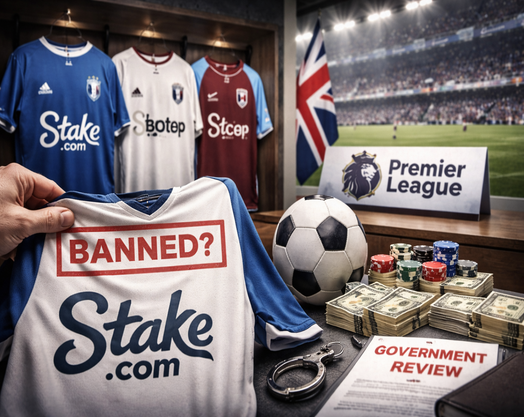- Casino News
- USA News
California Lawmakers Approve Ban on Sweepstakes Casinos
Tribal-backed bill targets operators
A bill targeting online sweepstakes casinos is now on Governor Gavin Newsom’s desk after the California Assembly voted 63-0 Friday to approve the measure on the final day of the legislative session. The legislation, Assembly Bill 831, would make it a misdemeanor to operate or knowingly support dual-currency sweepstakes platforms that mimic casino or sports betting products. These platforms typically rely on two types of virtual currency: “gold coins” used for free play and “sweeps coins” that can later be redeemed for cash prizes. Lawmakers and regulators argue that the system creates a gambling-like experience while skirting traditional oversight, putting consumers at risk and creating an uneven playing field for regulated gaming operators.
Assemblymember Avelino Valencia (D–Anaheim), who sponsored AB 831, secured bipartisan backing for the proposal as it advanced through multiple committees and floor votes in both chambers. The bill was supported by the California Nations Indian Gaming Association along with several major tribal governments that see unregulated sweepstakes operations as a threat to their existing gaming businesses. While the measure passed without opposition in the legislature, not all tribes agreed with the approach. Four tribal governments opposed the bill, underscoring the complex and often divided interests within California’s tribal gaming sector.
From Tribal Issue to Casino Ban
Opponents of the bill also raised concerns that it could unintentionally impact other sweepstakes-based promotions, such as long-running marketing campaigns by companies like McDonald’s and Starbucks. In response, lawmakers added language to exempt the California State Lottery and traditional promotional sweepstakes before the measure received its final Senate vote. Still, opposition persisted. “AB 831 is a flawed and rushed bill that lacks broad tribal consensus,” said Jeff Duncan, executive director of the Social Gaming Leadership Alliance, in a statement before the Assembly vote. He warned that the measure could further restrict economic options available to tribes already facing fragile financial conditions, while urging lawmakers to instead pursue a framework for regulated online social gaming that could benefit both tribes and the state.
A National Trend
California’s action is part of a broader movement across the country to limit sweepstakes casino operators, which regulators argue exploit legal loopholes to deliver gambling-like products outside of traditional oversight. In recent months, legislatures in states such as Connecticut, Montana, and New Jersey have passed similar bans. Yet the outcomes have varied widely. In New York, lawmakers passed legislation earlier this summer, but Governor Kathy Hochul has not yet signed it into law. Prior to the bill’s passage, New York Attorney General Letitia James issued 26 cease-and-desist letters to operators, signaling that state officials were already prepared to take aggressive enforcement action.
Louisiana took a different path. Although lawmakers passed a sweepstakes casino ban, Governor Jeff Landry vetoed the measure, arguing that additional legislation was unnecessary because state regulators already had sufficient authority to address the issue. The Louisiana Gaming Control Board later followed through with enforcement by sending out 40 cease-and-desist orders to unregulated operators, including several sweepstakes platforms. Other states, including Arizona and Michigan, have also issued similar orders to pressure companies out of their markets, illustrating a patchwork approach to enforcement and regulation nationwide.
The legislative and regulatory pushback is beginning to reshape expectations for the sweepstakes casino industry. Earlier this week, research firm Eilers & Krejcik Gaming reduced its 2025 U.S. market revenue forecast from $4.7 billion to $4 billion, citing the wave of legal challenges and state-level bans. Even with the downward revision, the firm still projects 16% year-over-year growth in 2025, reflecting continued consumer demand. However, analysts anticipate the first signs of contraction in 2026, projecting a 10% revenue decline as legal and regulatory pressure intensifies. These forecasts suggest that while the industry remains lucrative in the short term, its long-term trajectory is increasingly uncertain.
AB 831 is a flawed and rushed bill that lacks broad tribal consensus… this bill would limit economic options available to tribes and worsen already fragile economic conditions.
What’s Next
Governor Newsom has not publicly indicated whether he will sign AB 831. If enacted, California would join a growing number of states that have chosen to ban sweepstakes casinos outright, potentially influencing regulatory debates in other jurisdictions. Given California’s size and influence as a gaming market, the decision could also shape national conversations over online gambling, consumer protection, and the balance between tribal sovereignty and state regulation. Whether Newsom approves the bill or not, the measure highlights the growing tension between emerging digital gambling models and the state’s tightly controlled gaming framework.






